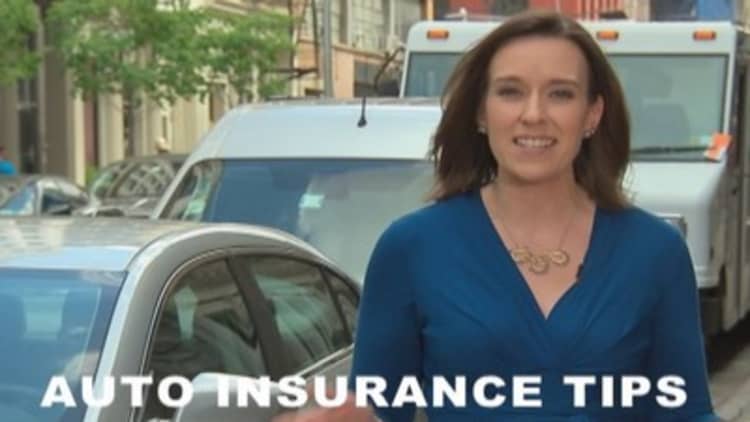What you don't know can hurt you when it comes to insurance.
Plenty of people believe in insurance myths—with dire financial consequences, according to a new Insure.com survey of 2,000 adults. "Anytime a consumer doesn't really understand what they're buying, or what they've decided not to buy, it can be an expensive mistake," said Amy Danise, a spokeswoman for Insure.com.
The most prevalent myth: 52 percent think they should buy homeowners' insurance coverage based on their homes' real estate market value. Not true. The important figure is the cost to rebuild after a total loss. "That number is totally different from what someone would pay for your home and the land on which it sits," said Michael Barry, a vice president with the Insurance Information Institute.

Being under-insured is particularly risky. If your coverage is less than 80 percent of the home's replacement value, insurers reimburse only a portion of damages, leaving you on the hook for more of the bill.
Read MoreIs your insurance policy ready for hurricane season?
There are potentially pricey misconceptions about auto coverage as well. One-third of consumers think comprehensive auto insurance "covers anything and everything." Although that is a fair definition of the adjective "comprehensive," there's a different meaning on the auto insurance front. There, it means you're covered for select perils that aren't related to a collision, such as theft, vandalism and damage from a natural disaster.
Comprehensive coverage isn't all you need, but that doesn't mean you should drop it, either. Costs run just pennies on the dollar, and covered situations aren't uncommon. "It really is one of the more cost-effective parts of the policy," said Barry.
Consumers in the Insure.com survey were more educated on other issues. Three-quarters understand that their insurance is on the line when a friend borrows their car, and 87 percent know that an out-of-state speeding ticket is just as damaging as one near home.
Read MoreThe insurance risks of a basement man cave
Still, plenty of myths prevail. The Insure.com survey is just the latest to reveal a wide gap in consumer knowledge about what's covered by auto and homeowners insurance policies. Others have noted a lack of understanding about coverage of everything from mold to earthquake damage to items stolen from a car.
The best recourse, of course, is to do research and ask questions when buying or renewing a policy.
"It's worth the time investment to understand what you're buying," said Danise. "When you have a disaster, it's too late to make that good decision."


